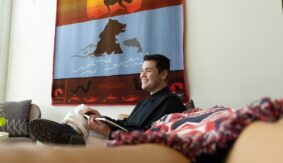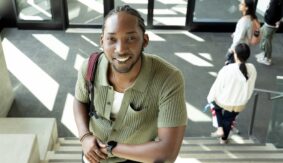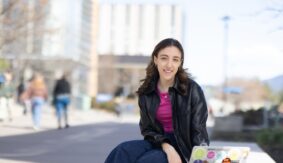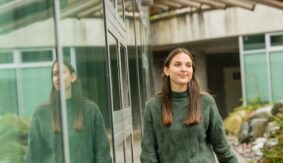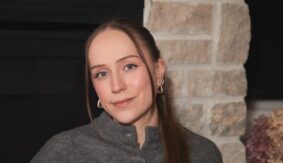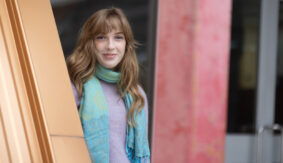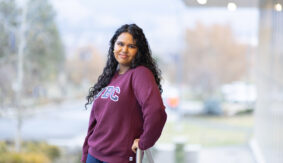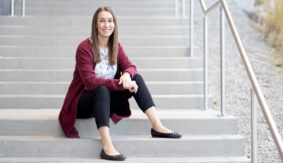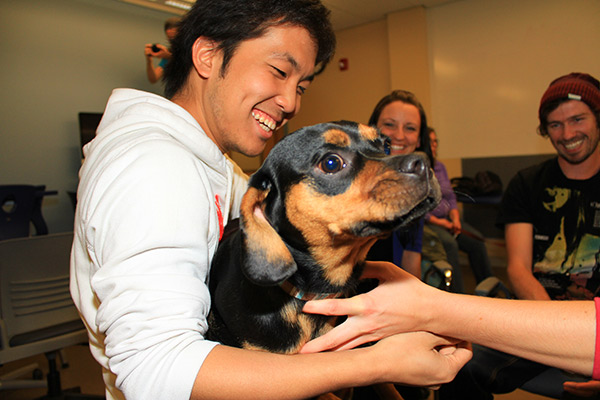
The long-running B.A.R.K. program on UBC’s Okanagan campus uses the restorative and calming power of therapy dogs to help students on campus.
It’s mid-term time on campus—that soggy time of year when students are mired in deadlines, stress levels are peaking, and homesickness is a common complaint. Luckily for students on UBC’s Okanagan campus, there’s an outlet for what ails them. Now in its fourth year, the B.A.R.K.(Building Academic Retention Through K-9s) program allows students to spend quality time with therapy dogs to reduce stress and homesickness.
UBC Faculty of Education assistant professor Dr. John-Tyler Binfet launched the program in 2012, after moving to Kelowna from Los Angeles, where he did community volunteer work in a program that used therapy dogs to aid the well-being of adolescents with brain injuries. “I’ve always been a big animal advocate and active in rescue work, so incorporating dogs into my work was a natural extension of something close to my heart,” says Dr. Binfet.
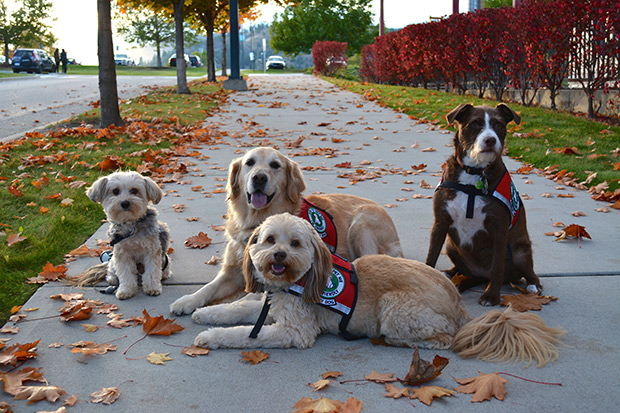 B.A.R.K. works with Kelowna’s local dog rescue, Paws it Forward, and 60 percent of the program’s 45 therapy dogs are rescues.
B.A.R.K. works with Kelowna’s local dog rescue, Paws it Forward, and 60 percent of the program’s 45 therapy dogs are rescues.
Knowing the restorative and calming power of therapy dogs, Dr. Binfet quickly recognized a need on campus. “I couldn’t walk across campus without being besieged by students wanting to interact with my dog, Frances,” he says. “These students would tell me about being homesick and missing their pets. This was the genesis of my program.”
B.A.R.K. has grown from 12 dogs with volunteer handlers, to 45 dogs with handlers, 22 undergraduate volunteers, and two graduate students conducting research. Through a new partnership with Dr. Eric Li, assistant professor of marketing in the Faculty of Management, Dr. Binfet mentors third-year marketing students who are strategizing ways to develop B.A.R.K. merchandise and grow the program’s social media presence on Facebook, YouTube, Instagram, and its bilingual website.
“What I hear most often from students who participate in B.A.R.K. programs is that it makes them feel ‘at home,’ and it helps them become connected to other students.” – Dr. John-Tyler Binfet, assistant professor, UBC Faculty of Education
Currently B.A.R.K. offers three types of interaction: drop-in sessions, B.A.R.K. 2 Go, and intervention studies. For drop-in sessions, the program brings 15-20 dogs to campus on Friday afternoons, allowing students to visit and interact at their leisure. Through B.A.R.K. 2 Go, the program runs on Wednesdays at various locations around campus.
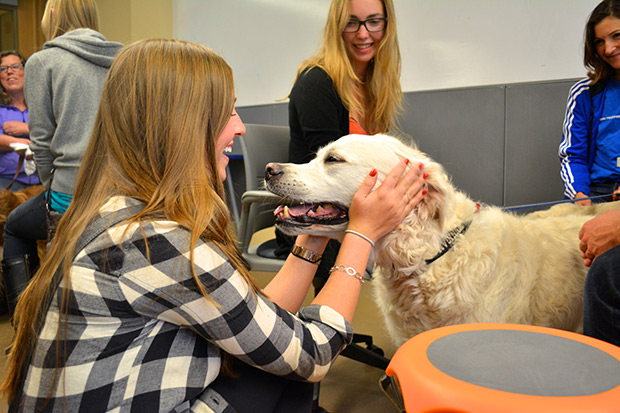 Dr. Binfet says the program has many “regulars” who never miss a session, and many have gone on to become B.A.R.K. volunteers.
Dr. Binfet says the program has many “regulars” who never miss a session, and many have gone on to become B.A.R.K. volunteers.
The intervention studies are experimental studies designed to assess the effects of canine therapy on students’ well-being. “We are one of the few programs that run randomized, controlled trials examining the effects of canine therapy on university students’ well-being,” says Dr. Binfet. “With our pool of 45 therapy dogs and handlers, we are the largest program offered at any Canadian university.”
No matter the type of interaction a student chooses, Dr. Binfet says that participants can expect a warm welcome and “an inclusive climate that supports their well-being.”
